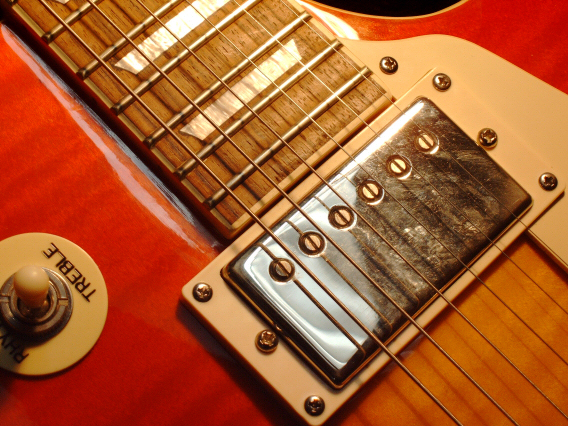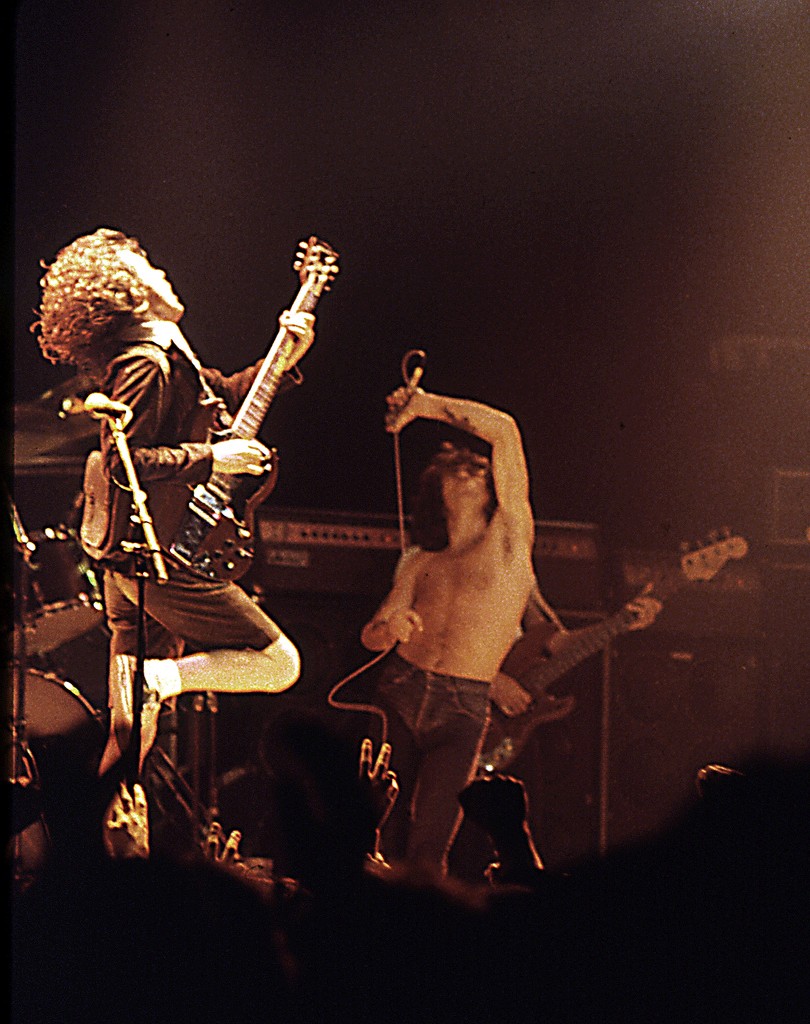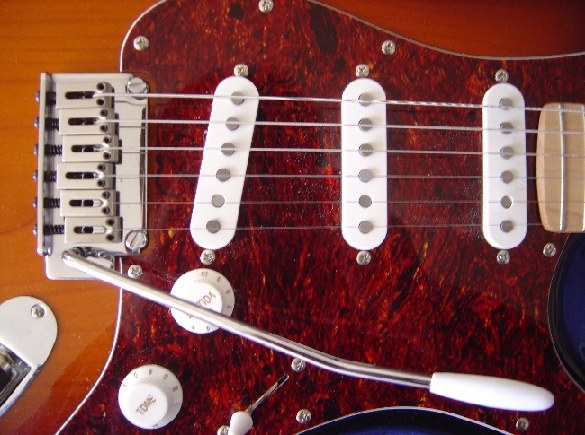Music and the Brain
Interview with
Meera - If you think about it, music is a pretty amazing thing. It has the ability to make us really happy but also drive us crazy. Whilst some people love the cheesy tracks of the Spice Girls, or the hip hop beats of Kanye West, others can hate these with a real passion. So what is it about music that has this effect on us? I spoke to Daniel Levitin from McGill University in Montreal about what music actually does to our brains.
 Daniel - Well the remarkable thing about music is that it activates nearly every region of the brain we've mapped so far. Music listening involves the auditory cortex, which is one of the first places in the brain that the music is processed but then it gets shuffled off and different parts of the brain extract pitch from rhythm from timbre and melody and harmony. Even if you're not a musician and even if you're not aware you're doing it the music listening experience involves the frontal lobes trying to figure out what notes are going to come next. That's how we get a sense of surprise and release in music: that Ahhhh feeling that the composer played a note that you really liked. That experience could only happen if subconsciously your brain was trying to figure out what the composer might do. Often when people are listening to music we find visual cortex activation, either because they're imagining movement, or imagining watching a performer.
Daniel - Well the remarkable thing about music is that it activates nearly every region of the brain we've mapped so far. Music listening involves the auditory cortex, which is one of the first places in the brain that the music is processed but then it gets shuffled off and different parts of the brain extract pitch from rhythm from timbre and melody and harmony. Even if you're not a musician and even if you're not aware you're doing it the music listening experience involves the frontal lobes trying to figure out what notes are going to come next. That's how we get a sense of surprise and release in music: that Ahhhh feeling that the composer played a note that you really liked. That experience could only happen if subconsciously your brain was trying to figure out what the composer might do. Often when people are listening to music we find visual cortex activation, either because they're imagining movement, or imagining watching a performer.
Meera - I think the trains and tubes are evidence enough that people are clearly daydreaming as they listen to their iPods®. But now we know what the initial effect on our brain is, what is it about music that makes it so easy to stay in our heads?
 Daniel - I would characterise it as being constituted of multiply redundant or reinforcing cues. What I mean by that is, if you're trying to remember the words there are a lot of things that constrain them. You've got the accent structure, the melody. You've got a rhyming scheme, there are only certain words that will fit at the end of a line. In terms of melody you may not remember all the notes of the melody but if you remember that the melody starts low and it goes high. It might be going [SINGS] and you have to get from one to the other. There are only certain notes that it could be. There's a certain aspect of human memory that's illusory. You don't remember every detail of everything but you construct some of the details at the moment of recollection. So you fill in information that isn't actually in your memory with a plausible substitute. This happens all the time in music.
Daniel - I would characterise it as being constituted of multiply redundant or reinforcing cues. What I mean by that is, if you're trying to remember the words there are a lot of things that constrain them. You've got the accent structure, the melody. You've got a rhyming scheme, there are only certain words that will fit at the end of a line. In terms of melody you may not remember all the notes of the melody but if you remember that the melody starts low and it goes high. It might be going [SINGS] and you have to get from one to the other. There are only certain notes that it could be. There's a certain aspect of human memory that's illusory. You don't remember every detail of everything but you construct some of the details at the moment of recollection. So you fill in information that isn't actually in your memory with a plausible substitute. This happens all the time in music.
Meera - The really amazing thing about music though is that it has the ability to cheer us up and really excite us. How does it do that?
Daniel - We don't know what it is about music and why music does it and not dogs barking but we know something about what's going on and not the why. What I mean is that there is a certain network of structures in the brain, in the limbic system, that begin to fire when we have a variety of pleasurable experiences. These include taking cocaine, or having an orgasm, or eating chocolate and it turns out that when people listen to music that same network of neurons starts to fire. These neurons help to modulate levels of dopamine in the brain. Dopamine is one of the neurotransmitters that essentially makes you feel good. So when you listen to music that you like, you get this actual change of chemical levels in your brain.
Meera - What about the awful songs that drive you crazy?
 Daniel - If you hear music that you don't like that dopamine system won't be activated and if you really don't like the music your medulla, which is the seed of the flight or fright reaction, could be activated. You'll get really agitated and might start to sweat and you might get angry. The American government drove Manuel Noriega out of his compound by playing him 36 hours of ACDC music. That was enough to drive him to surrender. I think we've all had that experience where you're in a shopping mall or something and they're piping in music and you wish it would just stop.
Daniel - If you hear music that you don't like that dopamine system won't be activated and if you really don't like the music your medulla, which is the seed of the flight or fright reaction, could be activated. You'll get really agitated and might start to sweat and you might get angry. The American government drove Manuel Noriega out of his compound by playing him 36 hours of ACDC music. That was enough to drive him to surrender. I think we've all had that experience where you're in a shopping mall or something and they're piping in music and you wish it would just stop.
Meera - Tell me about it. There's nothing worse than an irritating song being belted in your ear. Have you ever thought you didn't like a song, say because it didn't sound like music to you, and then found that after a while you suddenly really like it? What's that about?
Daniel - If a piece of music that you hear is too simple and you can predict every move the composer makes, you might find it pleasurable on the first few listens but you'll rapidly tire of it. If it's a little bit difficult though, you may not like it though because you can't sense any structure. Over time as its secrets are unlocked to you, your brain figures it out. That gives you a sense of ownership of it or a sense of involvement that you don't get if it's all too apparent. You begin to enjoy it and it can become one of your favourite pieces of music.
Meera - With such a difference in the genres of music available to us there's a real divide on what people class as good music. One rumour that goes around is that listening to classical music can have a better effect on your brain and even make you smarter. So to finish off I had to ask him if there was any truth in this. Because, whilst I may listen to a bit of Mozart, my guilty pleasure is that I do blast out a little bit of the cheese every now and then.
 Daniel - Really the most important factor in all of this is whether you like the music or not. If you like it it's going to engage the pleasure centres and if you hate it it's going to engage the fear centres. Apart from that there's no evidence that listening to classical is going to engage brain regions in a more sophisticated way than listening to hip hop. If you listen to music with lyrics you'll get different activations to music without lyrics. Music with a beat is going to give you activation in the cerebellum that you wouldn't get from music without a beat. So comparing James Brown to Enya, for example, or James Brown to Vivaldi: James has more beat so there's going to be more rhythmic centres involved. It would be wrong to conclude that one kind of music is preferred by the brain or is seen as better by the brain.
Daniel - Really the most important factor in all of this is whether you like the music or not. If you like it it's going to engage the pleasure centres and if you hate it it's going to engage the fear centres. Apart from that there's no evidence that listening to classical is going to engage brain regions in a more sophisticated way than listening to hip hop. If you listen to music with lyrics you'll get different activations to music without lyrics. Music with a beat is going to give you activation in the cerebellum that you wouldn't get from music without a beat. So comparing James Brown to Enya, for example, or James Brown to Vivaldi: James has more beat so there's going to be more rhythmic centres involved. It would be wrong to conclude that one kind of music is preferred by the brain or is seen as better by the brain.
Meera - That was Professor Daniel Levitin explaining the regions of the brain stimulated by music and why it's so easy for songs to get stuck in our heads or for us to get annoyed by music in shopping malls and by ACDC.
- Previous The Science of the Voice
- Next Evolution of Music










Comments
Add a comment